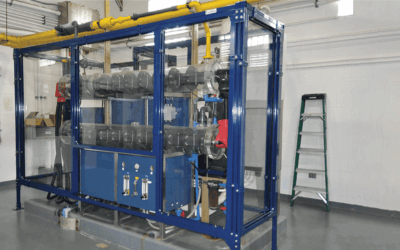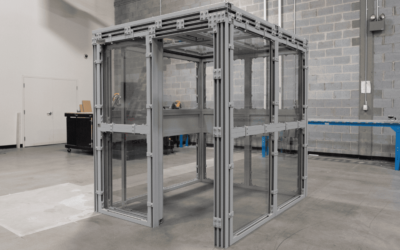Americans have been lied to and misled for years over “Made In America” products.
It’s a symbol carrying a powerful emotional and patriotic appeal, signaling:
- Support for domestic jobs
- Quality craftsmanship
- A premium price point
But it’s often a sham, a marketing ploy exploited by corner-cutting companies. In truth, many of these products are about as American as a fortune cookie.
The root of the issue lies in the lack of a clear, universally enforceable standard for what actually constitutes “Made in America.”
- The Federal Trade Commission (FTC) requires products to be “all or virtually all” made in the United States to use the label without qualifications.
- Yet enforcing these standards has proven challenging, often relying on consumer complaints rather than proactive investigations.
Some companies exploit the emotional appeal of “Made in USA” with misleading tactics.
- Terms like “Designed in the USA” or “Assembled in the USA” for products with largely imported components
- American flags and patriotic imagery to imply US origin
- Some brands even mislabel entirely imported products as American-made
The consequences are dire, eroding trust and damaging to both consumers and honest businesses:
Misplaced Trust:
Consumers, driven by a desire to support American jobs and manufacturing, are left feeling betrayed and cynical when they discover they’ve been deceived.
Overpaying:
The “Made in America” label commands a premium, leading consumers to pay inflated prices for products that don’t live up to the claim, essentially robbing them of their hard-earned money.
Difficulty Making Informed Decisions:
The prevalence of misleading tactics leaves consumers struggling to distinguish genuinely American-made products, creating a minefield of uncertainty and doubt.
Undermining American Businesses:
Companies that have the integrity to invest in US manufacturing and sourcing are unfairly disadvantaged, struggling to compete against those who exploit loopholes and peddle false claims.
But the repercussions extend beyond individual consumers and businesses.

The very notion of “Made in America” is being eroded, losing its power and meaning.
- As companies push the boundaries of what they can claim and enforcement remains relatively lax, the label risks becoming nothing more than a hollow marketing gimmick.
- This not only hurts the economy by siphoning support away from genuine American manufacturers but also weakens the emotional connection and patriotic spirit the label once evoked.
Thankfully, the FTC watchdog is starting to take notice and crack down on the worst offenders owing to new enforcement powers it received in 2021.
- It’s opened at least 51 investigations and enforcements since then, Bloomberg Law reports.
- In recent years we’ve seen record FTC fines under its enhanced powers:
Williams-Sonoma Case:
- Homeware firm Williams-Sonoma was fined $3.18 million for falsely labeling Chinese-made mattress pads as “Made In USA” and advertising six other products as American-made when they were not.
- FTC Chair Lina M. Khan said its “deception misled consumers and harmed honest American businesses”.
Old Southern Brass Case:
- Old Southern Brass marketed China-made glassware as American-made and was fined an initial $4.2m – reduced to $150,000 due to the owner’s inability to pay.
- The company also falsely claimed to be veteran-operated and to donate 10% of sales to military service charities.
- The Florida-based company engaged in “brazen deception” and “cheated consumers who wanted to support US manufacturing” said the FTC’s Samuel Levine.
Kubota Case:
- Kubota North America Corporation paid a $2 million civil penalty for mislabeling thousands of imported tractor parts as Made in USA.
- It also failed to update product labeling after moving manufacturing for some parts from the US abroad, leaving them incorrectly displaying “Made in the USA.”
These cases send a clear message: if you’re going to use the “Made in America” label, you better be able to back it up.
While it’s a positive sign, it doesn’t go far or wide enough.
We need the FTC to dedicate more resources to proactively investigate and heavily fine companies playing fast and loose with definitions and outright lying.
At TotalShield, we take the “Made In America” label seriously
- Every single component of our products, from the raw materials to the final assembly, is sourced and manufactured right here in the USA.
- We don’t cut corners, we don’t use weasel words, and we don’t compromise on quality.
- When you see the TotalShield name, you can trust that you’re getting a product that embodies the very best of American craftsmanship.
While we are intrinsically motivated to build up and support American suppliers, we must also be very careful about the materials we use because human safety is at stake.
The reality is that the incidence of product substitutions and formulation changes is higher in imported goods.

A foreign supplier of, for example, polycarbonate, may make a change to the formulation, curing, or bonding process of the polycarbonate without disclosing the change. If this change introduces a structural weakness, it could compromise the integrity of our product.
In our experience, dealing with a reputable US manufacturing supplier operating under the context of US contract law makes this far less likely.
While we have been successful in sourcing US-made components for TotalShield shielding solutions, the reality for many US manufacturers is that not every component can be practically sourced from an American supplier.
FTC guidance supports this, allowing for minor foreign content if it is negligible in cost and significance to the final product.
- For example, a grill made in Nevada can claim without qualification to be “Made in the USA” even if the knobs and tubing are imported, as long as they are negligible in cost and significance to the overall product.
- But a table lamp cannot make the same claim if, for example, the base is imported. Even though it may be a small part of the total cost, the base is a “significant” component of the final lamp, it states.
Businesses can also promote products as American-made with a caveat that distinguishes the percentage made in the US and how much abroad.
Yet as Daniel Kaufman, former FTC Bureau of Consumer Protection acting director, points out: “The standards can be difficult to interpret, and there can be some ambiguity”.
These are positive indications.
But we have a long way to go in terms of enforcement, education, and standardization before the “Made In America” label means something again.
- A future where consumers can trust that they’re getting what they pay for.
- Where American businesses can thrive by producing quality goods on home soil.
But the benefits go further.
- When we support genuine American manufacturing, we’re investing in our own future, supporting innovation, and creating a skilled workforce that can compete on the global stage.
- We’re building a stronger, more resilient nation that can weather storms and downturns and come out on top.
As awareness grows and enforcement intensifies, companies are likely to be more cautious with their “Made in USA” claims.
- Consumers may become more skeptical and demanding of proof for origin claims.
- There’s also potential for more nuanced labeling systems that better reflect the realities of global manufacturing while still highlighting domestic content and labor.
Overall, the “Made in America” controversy underscores the complex interplay between consumer expectations, corporate marketing, global trade, and national economic interests.
Transparency, accuracy, and widespread enforcement are key to maintaining the value and integrity of the “Made in USA” label.
So, what can you do as a consumer?
- Start by being vigilant. Don’t just take “Made in America” claims at face value – demand transparency, proof and specifics.
- Notice weak or suspect phrasing, or US imagery presented without a tangible claim
- Look for companies that are committed to true American manufacturing, and support them with your dollars.
- And spread the word – let your friends and family know about the importance of genuinely American-made products.
Let’s fight back against this great American swindle. Expose the liars and cheats, and shine a light on the true heroes of American manufacturing.
I stand with every American company that puts its heart and soul into making products of which we can all be proud.
Every purchase is a vote for integrity.
You’re not just buying products, you’re investing in a stronger America.









